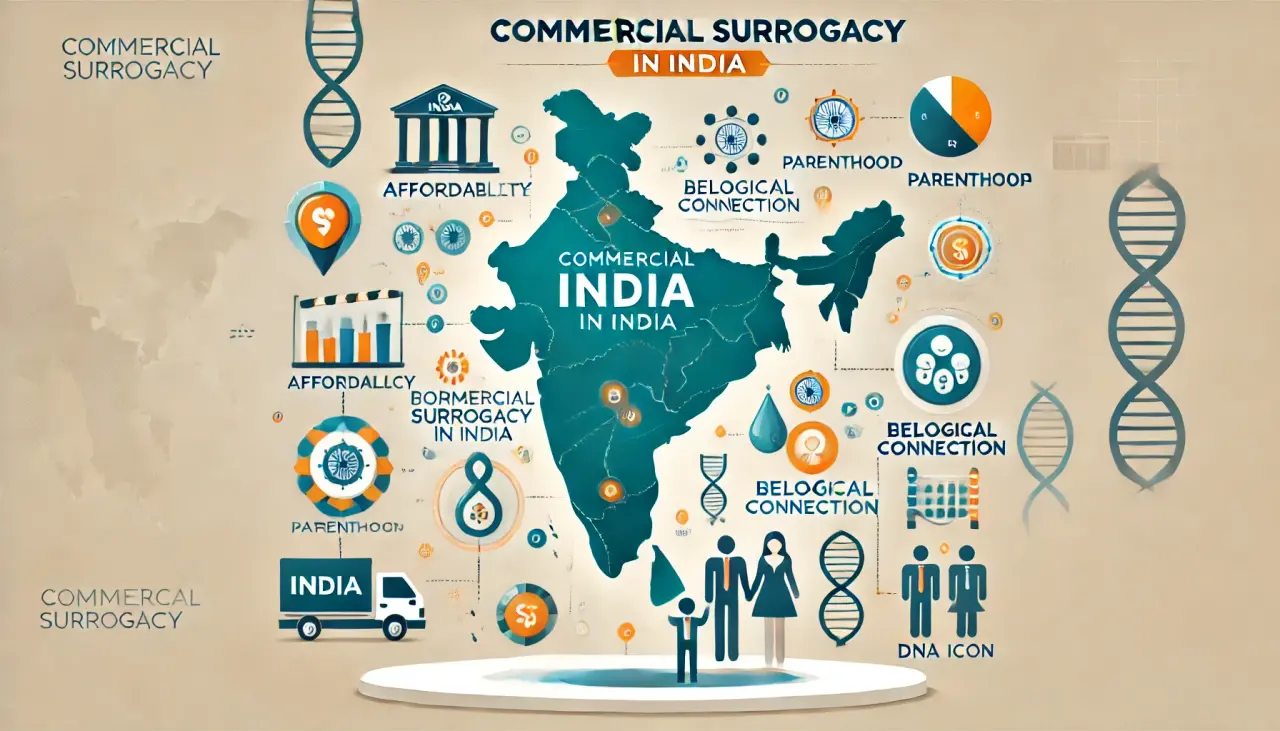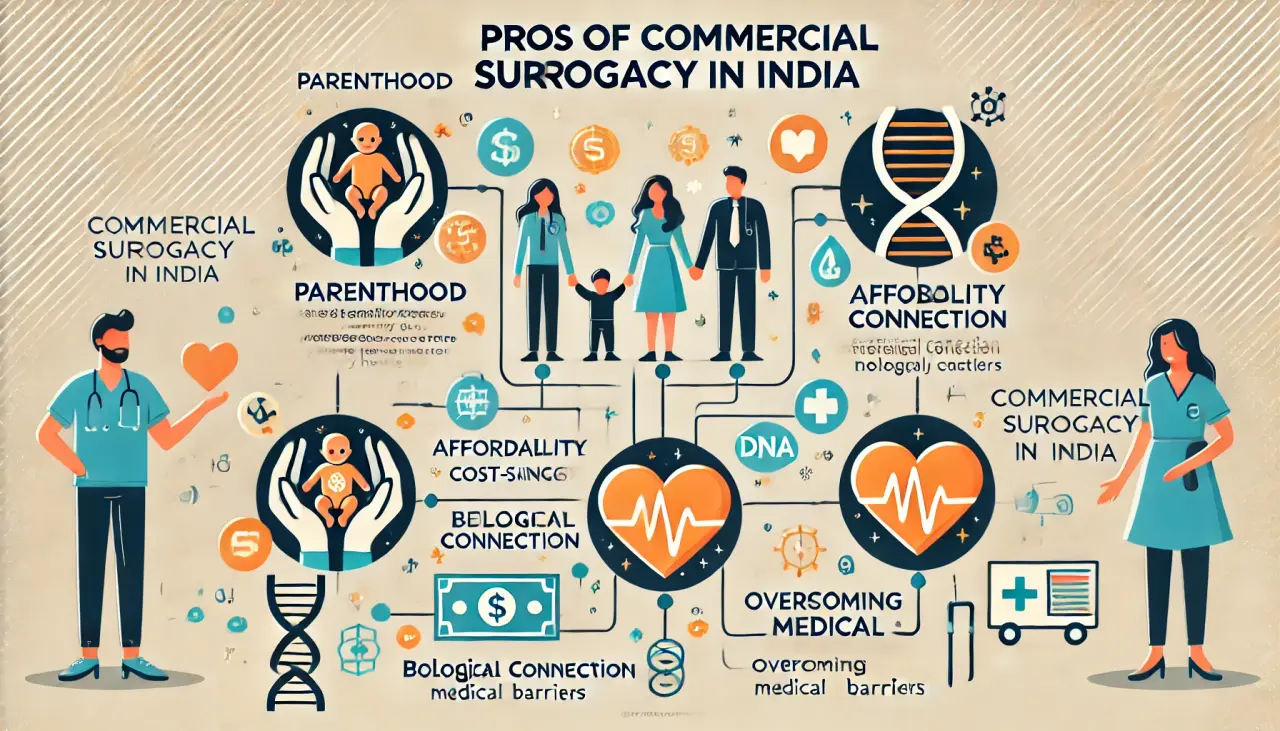
What are the Pros and Cons of Commercial Surrogacy in India?
Commercial surrogacy in India has long been a popular option for couples seeking to have children, especially for those facing medical infertility or related issues. However, while it offers potential solutions for these couples, it also presents several challenges. Below is an overview of the pros and cons of commercial surrogacy, along with insights into paid surrogacy in India.

Pros of Commercial Surrogacy in India
- Provides an option for parenthood: Commercial surrogacy offers a way for couples who are unable to conceive on their own to experience the joy of parenthood.
- Affordable compared to other countries: India is often considered a cost-effective destination for surrogacy, making it accessible to international couples.
- Enables biological connection: Gestational surrogacy allows the intended parents to have a biological connection to the child.
- Helps overcome medical barriers: Surrogacy provides a solution for couples facing medical conditions that prevent them from carrying a pregnancy themselves.

Cons of Commercial Surrogacy in India
- No formal payment structure for surrogates: A significant portion of the money spent on commercial surrogacy in India, such as the typical 40 Lakh Rupees cost, does not go directly to the surrogate mother. Instead, much of it is retained by surrogacy agencies and homes.
- Poor medical facilities: Many surrogacy centers in India lack basic medical standards, which could compromise the health and safety of both the surrogate and the child.
- Lack of proper legal protections: Legal loopholes exist regarding the rights of surrogate mothers and the child, especially concerning issues like nationality and citizenship.
- Exploitation risks: The unregulated nature of paid surrogacy in India can lead to the exploitation of women, particularly those from disadvantaged backgrounds.
- Ethical concerns: The practice of surrogacy in India raises ethical issues such as consent, treatment of surrogate mothers, and the pressures placed on them.
- Emotional and social implications: Surrogacy can create long-term emotional challenges for both the surrogate and the intended parents, and social stigma remains a major issue.
Final Thoughts
In conclusion, while commercial surrogacy in India offers certain benefits, the process is fraught with challenges, including ethical issues, financial disparities, and poor regulation. If these issues are addressed, it could provide a win-win situation for both surrogate mothers and intended parents.